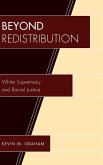Carceral logic explains Americans' stubborn attachment to or at least acceptance of prisons, both in the hyperbolic tough-on-crime rhetoric and in seemingly progressive sectors. Through a critical reading of John Locke and resources from phenomenology and decolonial and critical race theory, including insights from Baldwin and Dussel, this book emphasizes how racist, colonialist, and carceral myths have functioned in the emotional and existential lives of white Americans, affecting their values and character. Carceral logic, with its assumptions about harm and safety, has been inseparable from politically charged choices about what kinds of lawbreaking and what kinds of bodies to target, both from its beginnings in eighteenth-century Europe and in the political culture of the United States. This carceral logic has led to the incarceration of nearly two million Americans in 6,000 jails and prisons across the country, even when substantial evidence exists that prisons have had minimal impact on reducing crime and significant costs for our communities In response to the ways carceralism has embroiled us in vicious cycles of violence and mythmaking, Shari Stone-Mediatore argues for different kinds of stories about being human. With different narrative practices, we can loosen some of the masonry of carceralism through stories that are more attentive to the interdependency of our safety and well-being and that reinforce commitments to dignity and compassion and practices of grief and empathy.
Bitte wählen Sie Ihr Anliegen aus.
Rechnungen
Retourenschein anfordern
Bestellstatus
Storno








